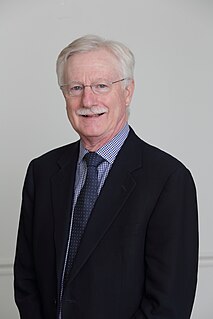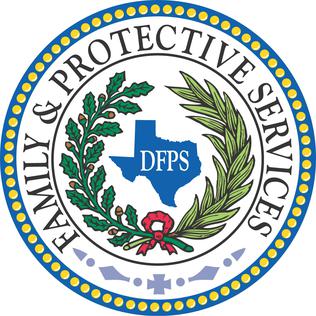Related Research Articles

The Controlled Substances Act (CSA) is the statute establishing federal U.S. drug policy under which the manufacture, importation, possession, use, and distribution of certain substances is regulated. It was passed by the 91st United States Congress as Title II of the Comprehensive Drug Abuse Prevention and Control Act of 1970 and signed into law by President Richard Nixon. The Act also served as the national implementing legislation for the Single Convention on Narcotic Drugs.

Inhalants are a broad range of household and industrial chemicals whose volatile vapors or pressurized gases can be concentrated and breathed in via the nose or mouth to produce intoxication, in a manner not intended by the manufacturer. They are inhaled at room temperature through volatilization or from a pressurized container, and do not include drugs that are sniffed after burning or heating. For example, amyl nitrite (poppers), nitrous oxide and toluene – a solvent widely used in contact cement, permanent markers, and certain types of glue – are considered inhalants, but smoking tobacco, cannabis, and crack are not, even though these drugs are inhaled as smoke or vapor.

Substance abuse, also known as drug abuse, is the use of a drug in amounts or by methods which are harmful to the individual or others. It is a form of substance-related disorder. Differing definitions of drug abuse are used in public health, medical and criminal justice contexts. In some cases, criminal or anti-social behaviour occurs when the person is under the influence of a drug, and long-term personality changes in individuals may also occur. In addition to possible physical, social, and psychological harm, the use of some drugs may also lead to criminal penalties, although these vary widely depending on the local jurisdiction.
The Substance Abuse and Mental Health Services Administration is a branch of the U.S. Department of Health and Human Services. It is charged with improving the quality and availability of treatment and rehabilitative services in order to reduce illness, death, disability, and the cost to society resulting from substance abuse and mental illnesses. The Administrator of SAMHSA reports directly to the Secretary of the U.S. Department of Health and Human Services. SAMHSA's headquarters building is located outside of Rockville, Maryland.
The National Institute of Mental Health (NIMH) is one of 27 institutes and centers that make up the National Institutes of Health (NIH). The NIH, in turn, is an agency of the United States Department of Health and Human Services and is the primary agency of the United States government responsible for biomedical and health-related research.

Alcohol dependence is a previous psychiatric diagnosis in which an individual is physically or psychologically dependent upon alcohol.

A dry county is a county in the United States whose government forbids the sale of any kind of alcoholic beverages. Some prohibit off-premises sale, some prohibit on-premises sale, and some prohibit both. Dozens of dry counties exist across the United States, mostly in the South.
Substance dependence, also known as drug dependence, is a biopsychological situation whereby an individual's functionality is dependent on the necessitated re-consumption of a psychoactive substance because of an adaptive state that has developed within the individual from psychoactive substance consumption that results in the experience of withdrawal and that necessitates the re-consumption of the drug. A drug addiction, a distinct concept from substance dependence, is defined as compulsive, out-of-control drug use, despite negative consequences. An addictive drug is a drug which is both rewarding and reinforcing. ΔFosB, a gene transcription factor, is now known to be a critical component and common factor in the development of virtually all forms of behavioral and drug addictions, but not dependence.

The Texas Alcoholic Beverage Commission, or TABC, is a Texas public agency responsible for regulating, inspecting, and taxing the production, sale, and use of alcoholic beverages within the state. The agency was established in 1935 and is headquartered in Austin.

A drug-related crime is a crime to possess, manufacture, or distribute drugs classified as having a potential for abuse. Drugs are also related to crime as drug trafficking and drug production are often controlled by drug cartels, organised crime and gangs.

In the United States, the non-medical use of cannabis is legalized in 19 states and decriminalized in 12 states as of May 2022. Decriminalization refers to a policy of reduced penalties for cannabis offenses, typically involving a civil penalty for possessing small amounts, instead of criminal prosecution or the threat of arrest. In jurisdictions without penalty the policy is referred to as legalization, although the term decriminalization is sometimes used for this purpose as well.

George F. Koob is a Professor and former Chair of the Committee on the Neurobiology of Addictive Disorders at The Scripps Research Institute and Adjunct Professor of Psychology, Psychiatry, and Skaggs School of Pharmacy and Pharmaceutical Sciences at the University of California, San Diego. In 2014 he became the director of the National Institute on Alcohol Abuse and Alcoholism.

The drug policy of the United States is the activity of the federal government relating to the regulation of drugs. Consumer drugs are regulated by the Food and Drug Administration (FDA) while the Drug Enforcement Administration (DEA) is tasked with enforcing laws against drug distribution.
Reclaiming Futures is a non-profit organization aimed at assisting teenagers out of trouble with drugs, alcohol and crime. It began in 2001 with $21 million from The Robert Wood Johnson Foundation. As of 2010 it operates with funding from the Robert Wood Johnson Foundation, the U.S. Office of Juvenile Justice and Delinquency Prevention (OJJDP), the Center for Substance Abuse Treatment and the Kate B. Reynolds Charitable Trust. As of 2010 the group is based at the Regional Research Institute for Human Services of the Graduate School of Social Work at Portland State University in the United States, and operates in 26 communities across the U.S.

The Texas Department of Family and Protective Services (DFPS) is responsible for investigating charges of abuse, neglect or exploitation of children, elderly adults and adults with disabilities. Prior to its creation in 2004, the agency had been called the Texas Department of Protective and Regulatory Services (DPRS).

Texas Department of State Health Services is a state agency of Texas. The department was created by House Bill 2292 of the 78th Texas Legislature in 2003 through the merging of four state agencies: the Texas Department of Health, Texas Department of Mental Health and Mental Retardation, Texas Health Care Information Council, and Texas Commission on Alcohol and Drug Abuse. The department provides state-operated health care services, including hospitals, health centers, and health agencies. The agency is headquartered at the Central Campus at 1100 West 49th Street in Austin. The DSHS Council governs the department.
The California Department of Alcohol and Drug Programs (ADP) was a California state agency concerned with substance abuse prevention and treatment. Created by the California Legislature in 1978, ADP brought together the Governor's Office of Alcoholism and the California Department of Health's Division of Substance Abuse to form the single state authority for substance abuse prevention and treatment, and is currently within the auspices of the California Health and Human Services Agency. In this capacity, ADP provided leadership and policy coordination for the planning, development, implementation, and evaluation of a comprehensive statewide system of alcohol and other drug (AOD) prevention, treatment and recovery services. As of July 1, 2013, functions of ADP were transferred to the Department of Health Care Services.
The Pennsylvania Department of Drug and Alcohol Programs is a cabinet-level agency in the Government of Pennsylvania under Governor Tom Wolf. The objective of this department is to manage and distribute state and federal funds used to oversee alcohol and drug prevention, intervention and treatment services.
References
- ↑ Home. Texas Commission on Alcohol and Drug Abuse. February 8, 1999. Retrieved on June 27, 2010.
- ↑ "2004 Texas Register Archive". University of North Texas. 2004. Retrieved November 22, 2009.